Comprehensive Guide to Garden Maintenance in Bermondsey
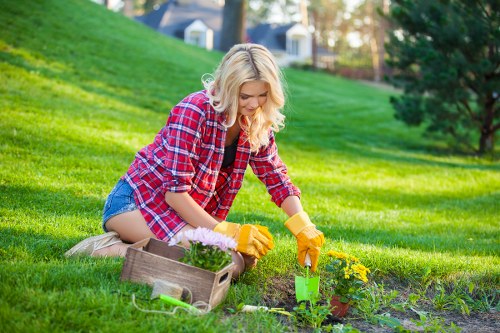
Introduction to Garden Maintenance in Bermondsey
Maintaining a beautiful garden in Bermondsey requires dedication, knowledge, and the right tools. Whether you're a seasoned gardener or a novice, understanding the unique climate and soil conditions of Bermondsey is essential for thriving plants.
Garden maintenance goes beyond mere watering and weeding; it encompasses a range of activities that ensure your garden remains healthy, vibrant, and inviting throughout the year.
In this article, we'll explore the best practices for garden maintenance in Bermondsey, offering tips and insights to help you create and sustain a stunning outdoor space.
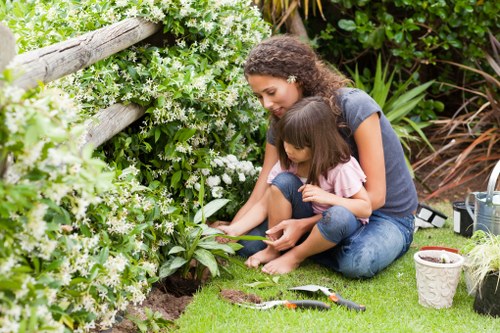
Seasonal Garden Care
Spring Maintenance
Spring is a crucial time for garden maintenance in Bermondsey. As the weather warms, it's the perfect opportunity to prepare your garden for blooming.
Tasks for Spring:
- Pruning shrubs and trees to encourage healthy growth
- Planting new flowers and vegetables
- Cleaning garden beds and removing debris
Additionally, applying a balanced fertilizer in early spring can give your plants the nutrients they need to thrive.
Summer Care
During the summer months, Bermondsey gardens may face heat and dryness. Proper irrigation and mulching are essential to retain moisture and protect plant roots.
Summer Tips:
- Watering plants early in the morning to reduce evaporation
- Using shade cloths for delicate plants
- Regularly checking for pests and diseases
Keeping an eye on your garden's hydration needs ensures that your plants remain lush and healthy even during the peak of summer.
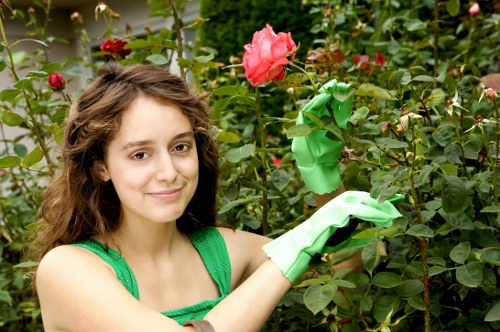
Essential Tools for Garden Maintenance
Basic Gardening Tools
Having the right tools is fundamental to effective garden maintenance in Bermondsey. Investing in quality equipment can make your gardening tasks more manageable and efficient.
Must-Have Tools:
- Pruners and shears for trimming plants
- Gloves to protect your hands
- Garden fork and spade for soil management
These tools not only enhance your gardening experience but also contribute to the overall health of your garden.
Advanced Equipment
For larger gardens or more intensive maintenance, consider investing in advanced tools such as:
- Lawnmowers for maintaining grassy areas
- Hedge trimmers for shaping shrubs and hedges
- Wheelbarrows for transporting materials
Having access to these tools can significantly reduce the time and effort required for garden upkeep.
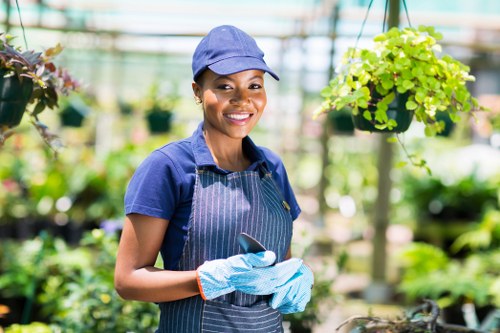
Pest and Disease Management
Identifying Common Pests
Pests can pose a significant threat to your garden's health. In Bermondsey, common garden pests include aphids, slugs, and caterpillars.
Identification Tips:
- Aphids: Small, sap-sucking insects often found on the undersides of leaves
- Slugs: Slimy creatures that damage plants by eating leaves and stems
- Caterpillars: Larvae that feed on various plant parts, leading to defoliation
Early detection is key to preventing extensive damage. Regularly inspect your plants and take prompt action when pests are detected.
Natural and Chemical Solutions
Managing pests involves a combination of natural predators and, if necessary, chemical treatments.
Natural Methods:
- Introducing ladybugs to control aphid populations
- Using beer traps for slugs
- Encouraging birds to feed on caterpillars
If natural methods are insufficient, consider using eco-friendly pesticides to minimize environmental impact while effectively controlling pests.
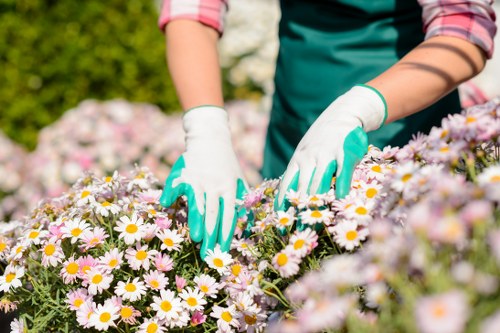
Soil Health and Fertilization
Testing and Improving Soil Quality
Healthy soil is the foundation of a thriving garden. Regularly testing your soil's pH and nutrient levels in Bermondsey ensures that your plants receive the necessary elements for growth.
Soil Testing Steps:
- Collect soil samples from different areas of your garden
- Use a soil testing kit or send samples to a local lab
- Analyze the results to determine nutrient deficiencies
Based on the test results, amend your soil with appropriate organic matter, such as compost, to enhance fertility and structure.
Effective Fertilization Practices
Fertilizing your garden in Bermondsey involves understanding the specific needs of your plants and applying the right type of fertilizer at the right time.
Fertilization Tips:
- Apply slow-release fertilizers to provide a steady supply of nutrients
- Use organic fertilizers to improve soil health and reduce chemical runoff
- Avoid over-fertilizing, which can lead to nutrient imbalances and plant stress
Proper fertilization promotes robust plant growth, vibrant blooms, and increased resistance to pests and diseases.
Landscape Design and Planning
Thoughtful landscape design enhances the beauty and functionality of your Bermondsey garden. Planning involves selecting the right plants, arranging them aesthetically, and ensuring they complement each other.
Design Principles:
- Balance: Distribute plants evenly to create a harmonious look
- Contrast: Use different colors and textures to add visual interest
- Focal Points: Incorporate elements like sculptures or water features to draw attention
By carefully planning your garden layout, you can create a space that is both visually appealing and easy to maintain.
Choosing the Right Plants
Select plants that are well-suited to Bermondsey's climate and soil conditions. Consider factors such as sunlight exposure, water requirements, and growth habits.
Plant Selection Tips:
- Opt for native species that are adapted to local conditions
- Incorporate a mix of perennials and annuals for year-round interest
- Choose plants with varying heights and bloom times to create depth and continuity
Carefully selected plants not only thrive with less maintenance but also enhance the overall aesthetic of your garden.
Creating Sustainable Gardens
Embracing sustainable gardening practices in Bermondsey contributes to environmental conservation and creates a healthy ecosystem.
Sustainability Tips:
- Use rainwater harvesting systems to reduce water usage
- Implement composting to recycle organic waste
- Plant pollinator-friendly flowers to support local wildlife
By adopting these practices, you can enjoy a beautiful garden while minimizing your ecological footprint.
Conclusion and Next Steps
Effective garden maintenance in Bermondsey requires a combination of proper planning, regular care, and sustainable practices. By following the guidelines outlined in this article, you can cultivate a garden that not only looks stunning but also thrives in the local environment.
Ready to transform your garden? Contact us today to schedule a consultation or book your service now and take the first step towards a more beautiful and healthy garden.
